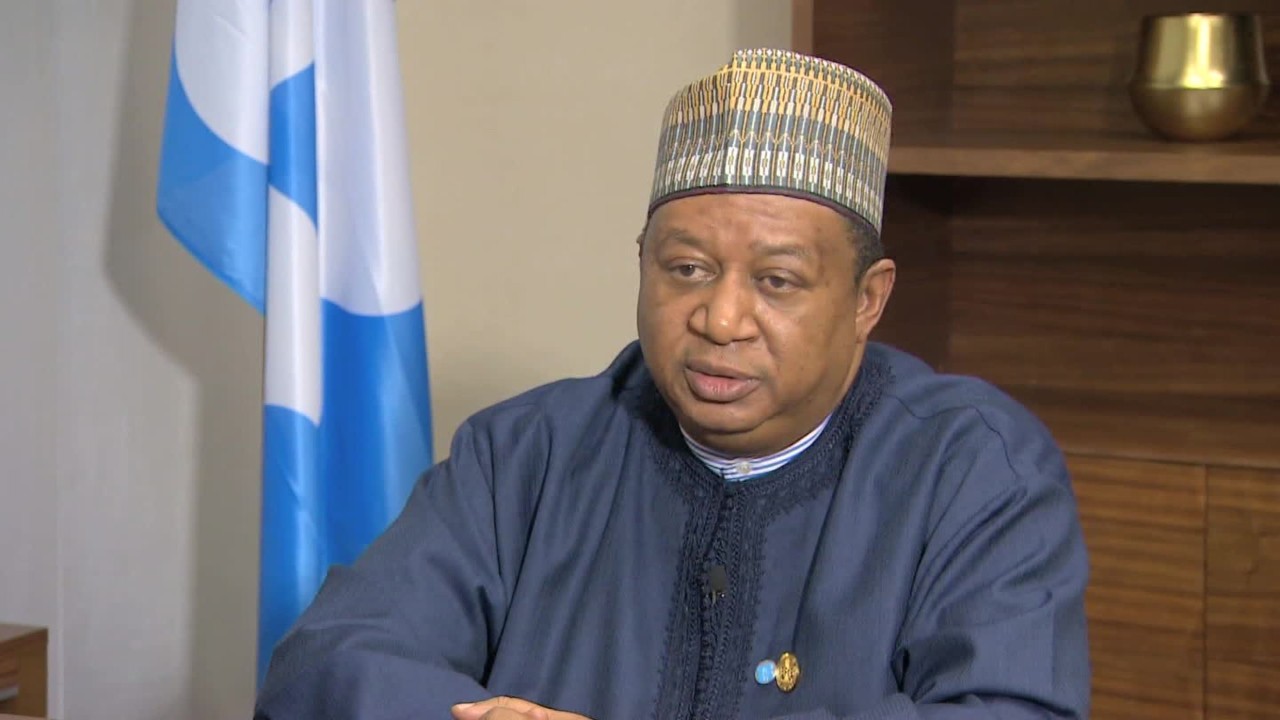Mohammad Barkindo, OPEC Secretary-General said Monday that the oil market is re-balancing at a quickening pace and production cuts are the “only viable option” to restore stability.
The Organization of Petroleum Exporting Countries should decide at its meeting later this month whether or not to extend the cuts, Suhail Al Mazrouei, United Arab Emirates Energy Minister said in a speech at a conference in Abu Dhabi, according to Bloomberg.

Neighboring Oman backs prolonging the output limits beyond March and sees producers extending them until the end of 2018, Oil Minister Mohammed Hamad Al Rumhy told reporters.
OPEC, in its monthly market report on Monday, will raise its estimate of oil demand growth to “above 1.5 million barrels a day” for both 2017 and next year, Barkindo said on Monday at the same conference. Stockpiles have declined by more than 180 million barrels this year alone, he said.
Oil trades near $57 as Saudis boost security at crude facilities
Output cuts by OPEC and other producers such as Russia and Oman have started to pay off, with Brent crude prices trading close to a two-year high. OPEC will meet in Vienna on Nov. 30 to review the pact, which took effect in January, and possibly extend it. Russia, Saudi Arabia and Iraq already signaled they would be open to extending the curbs.
Brent has gained 11 percent this year, and the benchmark grade was trading 18 cents lower at $63.34 a barrel in London at 10:12 a.m. local time.
“We are seeing clear indications that the market is re-balancing at an accelerating pace and stability is steadily returning,” Barkindo said. “I am certain that if we had not mobilized ourselves when we did, building consensus and jointly taking action in responding to the crisis, the industry would be in worse condition than it is today.”
The U.A.E.’s Mazrouei affirmed that view, saying that coordinated cuts by OPEC and suppliers outside the group have helped trim crude inventories from record storage levels. The U.A.E., OPEC’s fourth-largest producer, sees no need for the organization to hold an extraordinary meeting in the first quarter of next year, he said.
“I am optimistic about the whole of 2018,” which will be a “recovery year” for oil markets, he said in a speech at the Abu Dhabi conference. U.S. shale output, a contributor to the global glut, has responded more slowly than expected to the recent increase in crude prices, he later told reporters.
Oman, a member of the producer committee monitoring the cuts, added its support to prolonging them until the end of 2018. The largest Arab oil producer outside of OPEC expects crude to stay above $60 a barrel and sees stable prices next year, Al Rumhy said in an interview.
Global production curbs are the “only viable option” to restore stability in the oil market, Barkindo said.







